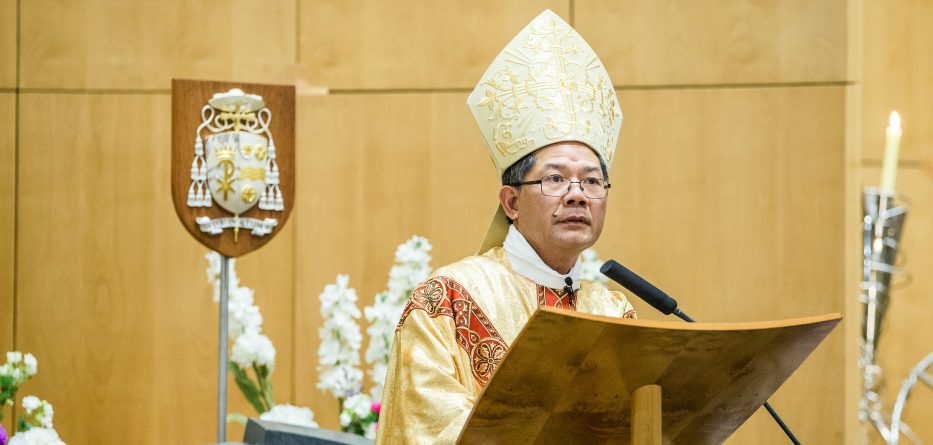“How does the Catholic welfare sector continue with ‘good works’ post the Royal Commission into Institutional Responses to Child Sexual Abuse?”
PART 2: A TIME OF CONVERSION
The failures in the Catholic Church’s response to child sex abuse that the Royal Commission has exposed are largely the failures of leadership, more specifically the failures of clerical system of leadership. I actually believe that the lay faithful and particularly Catholic agencies like the Society of St Vincent de Paul suffer largely from guilt by association. It is worth noting that the Royal Commission does not see the Catholic Church as monolithic. It recommends, for instance, that the clerical governance structures be reviewed, drawing from the modes of governance already implemented in Catholic health, community services and education agencies (which are mostly administered by lay professionals).
We, the leaders of the church, have failed the people and especially God’s little ones. Instead of demonstrating that fundamental ethos of care for those who have been harmed and are vulnerable, we have been shown to have cared primarily for the church’s own security, reputation and interests. In many ways, we have behaved like the Prodigal Son. We have squandered the church’s patrimony; we have betrayed your trust. It is time for us to come home to the heart of the Gospel, to convert to the radical vision of Christ and let it imbue our attitudes, actions and pastoral practices.
As far as I am concerned, the sexual abuse crisis has revealed deep-seated problems in the church. We can no longer limit our blame to the individuals who offended. We must also look for factors within the very culture of the church that have contributed to the sexual abuse crisis.
We need to explore the issues that lie underneath this phenomenon. Unless we are prepared to go beyond the symptoms and explore the deep cultural and structural issues that lurk beneath the surface, unless we genuinely repent of institutional failures, we will not be able to restore confidence and trust in the church.
When privilege, power and dominance are more evident than love, humility and servanthood in the church, then the very Gospel of the servant Jesus is at risk. What we need to reclaim for the church forcefully and unequivocally is the notion of powerlessness, vulnerability and servant leadership.
To this end, we leaders need to manifest the powerlessness, vulnerability and servant leadership of Christ in who we are and what we do. Until we have reclaimed powerlessness, vulnerability and servant leadership, the church will be less than what Christ intends it to be.
The church has been humbled and humiliated. It has been thrown off its high horse because it has been exposed as having failed its mission and betrayed its own ethos. But it is not necessarily a bad thing that we now have to start from a position of weakness and vulnerability in order to regain our trust and indeed our Gospel compass.
I am reminded of the story of the Apostle Paul on his way to Damascus. He fell off his high horse in more ways than one. The fall from his privileged position and the temporary physical blindness meant he had to be led by the hand. But this complete vulnerability was the catalyst for a whole new way of seeing, acting and relating. Paul was never the same afterwards. He learned to be humble, open and docile to God’s way. His strength no longer came from his status, entitlement, privilege and power.
The Catholic Church has had its Damascus moment in the sexual abuse crisis. It has fallen from the privileged position in society and the power and influence that came with that status. Now, like Paul who was led into a place of vulnerability, we are undergoing a time of uncertainty and darkness until we can learn to see, act and relate in the way of Christ the humble servant. We should not fear this time. For it can be a great opportunity and a tremendous blessing in disguise. We need to remember that the church was not at its best when it reached the heights of imperial power in what was known as Christendom. The church was at its best when it was poor, persecuted and powerless.
Part 3 will be published tomorrow.
To read Part 1 of Bishop Vincent’s address, click here.








